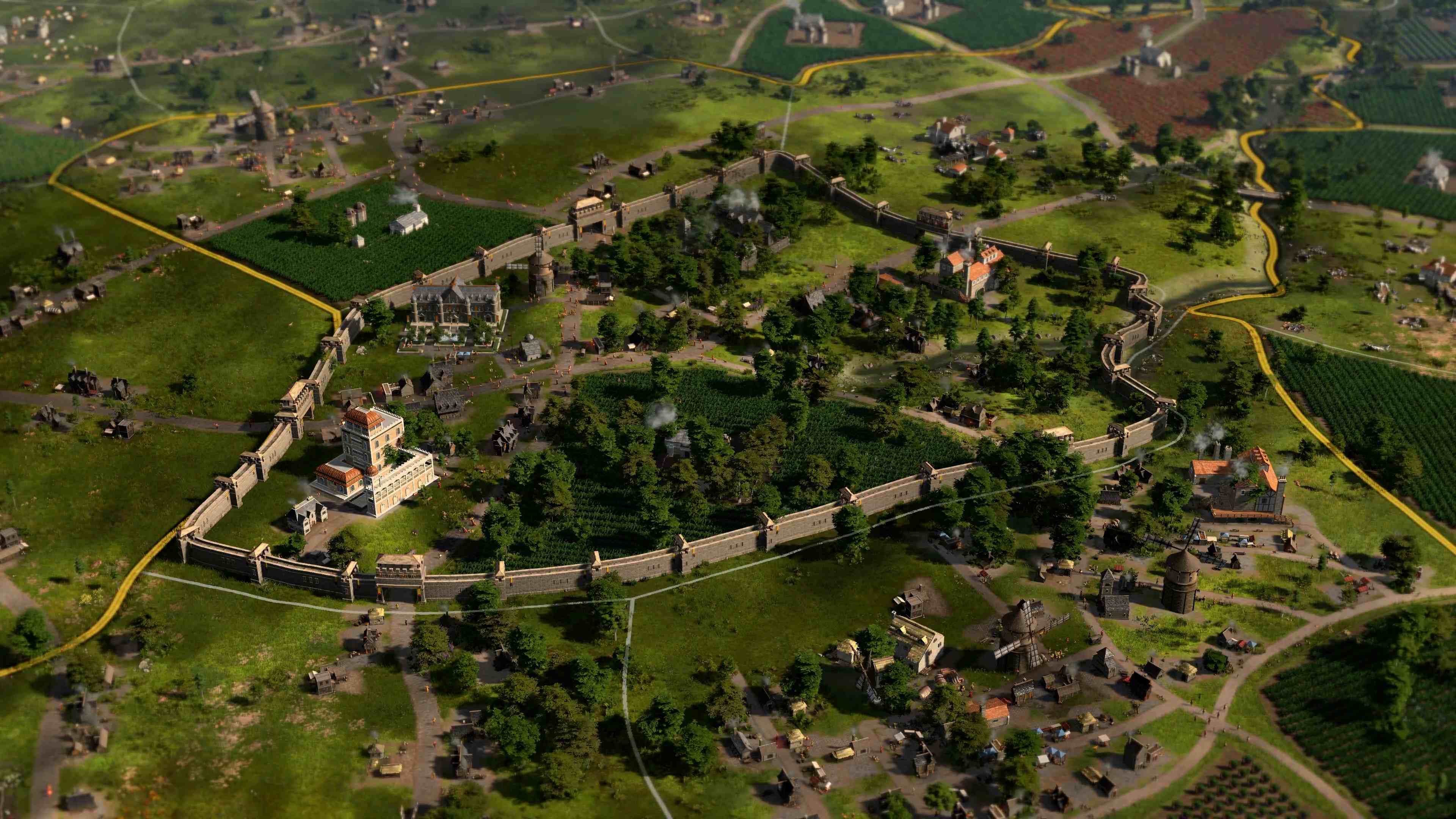
Rarely at the forefront of the ceaseless video games news cycle, strategy games nonetheless capture the attention of millions of gamers worldwide. Spread across a variety of sub-genres, strategy games are known for their overwhelming depth and layers of overlapping mechanics, challenging players to outthink and outmaneuver their opponents. I've personally played dozens upon dozens of games, but rarely do I venture into the strategy genre.
Ara: History Untold is shaping up to shatter that mold for me, enrapturing me during Xbox's invite-only Gamescom 2024 event in Los Angeles, California. There were plenty of games to play there, including Avowed, yet I ended up playing Ara: History Untold more than any other title. It highlights the emerging success of developer Oxide Games' strategy to invite newcomers to the historically unwelcoming genre with a "one more turn" addictiveness that many strategy fans will, undoubtedly, already be familiar with.
Once I returned home, I had the opportunity to chat with Gabriela Leskur, the Narrative and Experience Lead at Oxide Games, about my Ara: History Untold preview experience, the game's focus on PC players and accessibility, and how the game seeks to differentiate itself in a genre dominated by established franchises.
I have little experience with grand strategy games
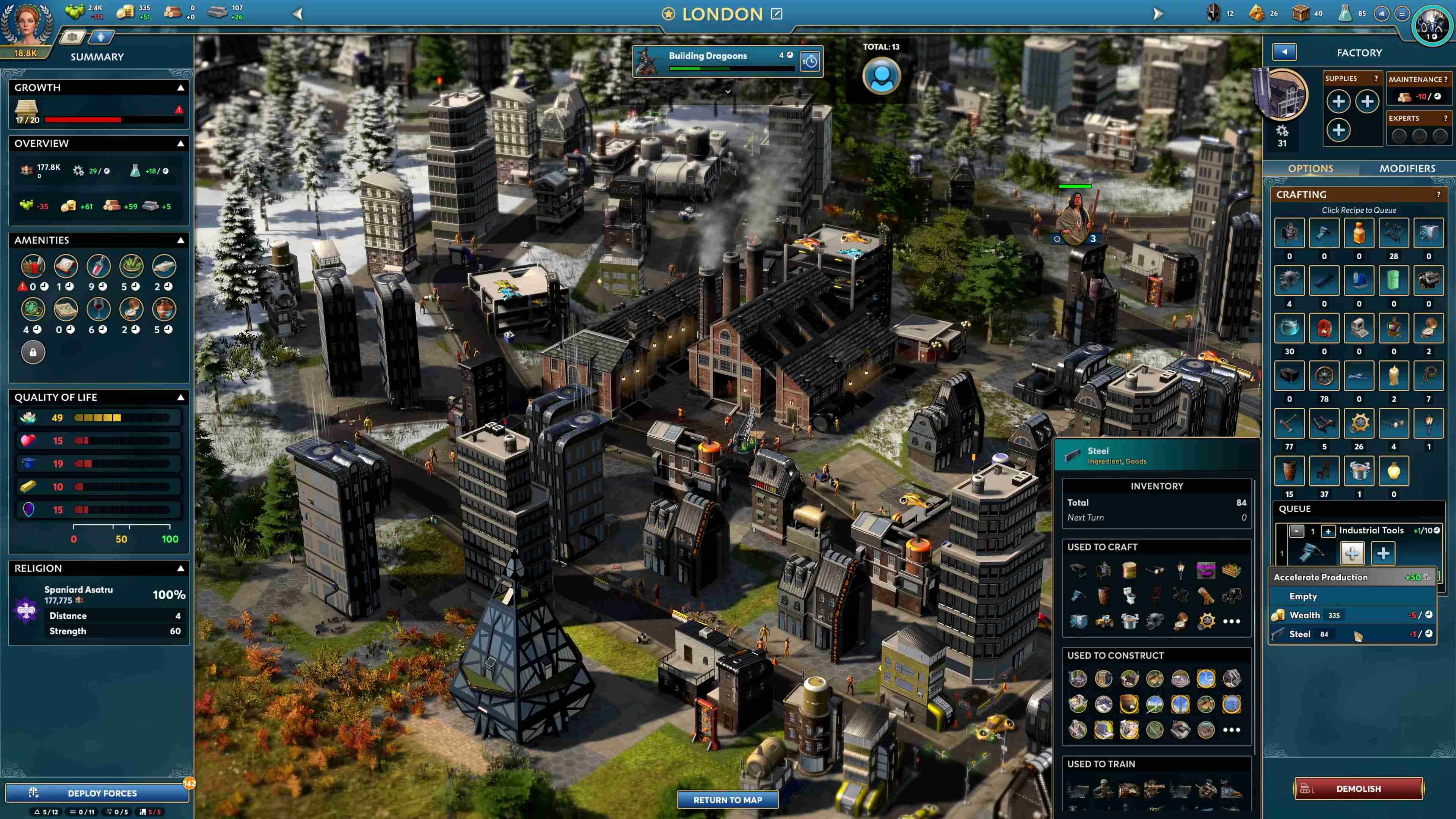
My very first laptop was a garbage Toshiba Satellite that I purchased with money earned from walking dogs and mowing lawns, and one of the very few games I could actually get to run on it was Age of Empires II HD. Years later, I also spent many hours playing Civilization VI with my partner at the time on our Xbox One S.
That is the extent of my experience with the strategy genre, and I've not been convinced so far to explore newer titles. Yes, this includes modern real-time strategy gems on Xbox and PC, like Age of Empires II Definitive Edition, Age of Empires IV, and Age of Mythology: Retold. When I traveled to LA to play upcoming Xbox and PC games like Avowed, Atomfall, and others, Ara: History Untold was admittedly far down the list of my personal priorities.
My first preview session did little to convince me, too, with the limited time I had not enough to really immerse myself in Ara: History Untold's take on 4X (read: turn-based) historical grand strategy. I did strike up a conversation with the Oxide Games representative at the event, however, and our discussion piqued my curiosity enough that later on in the day, I returned for a second, much longer preview (with the added luxury of being able to pick up right where I left off in the morning).
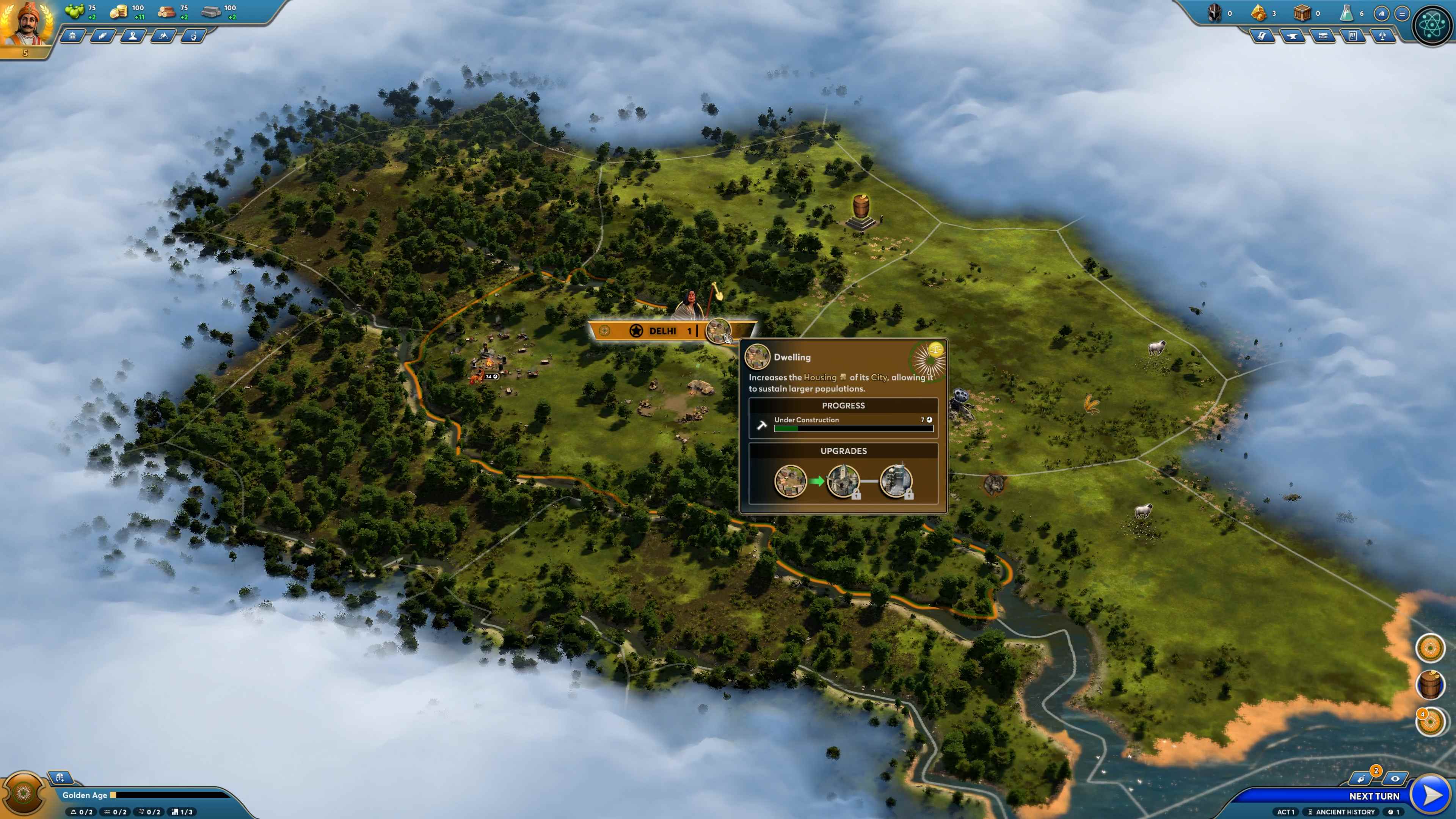
45 minutes later, I had to tear myself away to allow another attendee to play the game, and I was reluctant to do so. At some point, my trepidation turned to anticipation with each turn as I utilized the leader Sappho's unique abilities to turn the city of Athens into a cultural hub, keeping up with the world leaders even without any semblance of a military or a multitude of cities.
Many of the elements that had drawn me into Civilization years earlier were capturing me here, but I more often found myself considering the ways in which Ara: History Untold felt more inviting. A suite of new features and mechanics that I never found in Civilization allowed for more freedom of choice and flexibility, and it felt like I had significantly more room to actually strategize rather than mindlessly follow a single-minded plan for victory.
Toward the end of the Xbox Gamescom event in LA, I returned to my save file for a third time and ended up playing through a third of a complete, full-length round. Alright, Oxide Games, you got me. Ara: History Untold somehow went from a footnote in my personal list of the best upcoming Xbox and PC games to being a game I actually volunteered to help review for Windows Central when the time comes. But what actually drove that change in thinking?
My second Ara: History Untold preview won me over
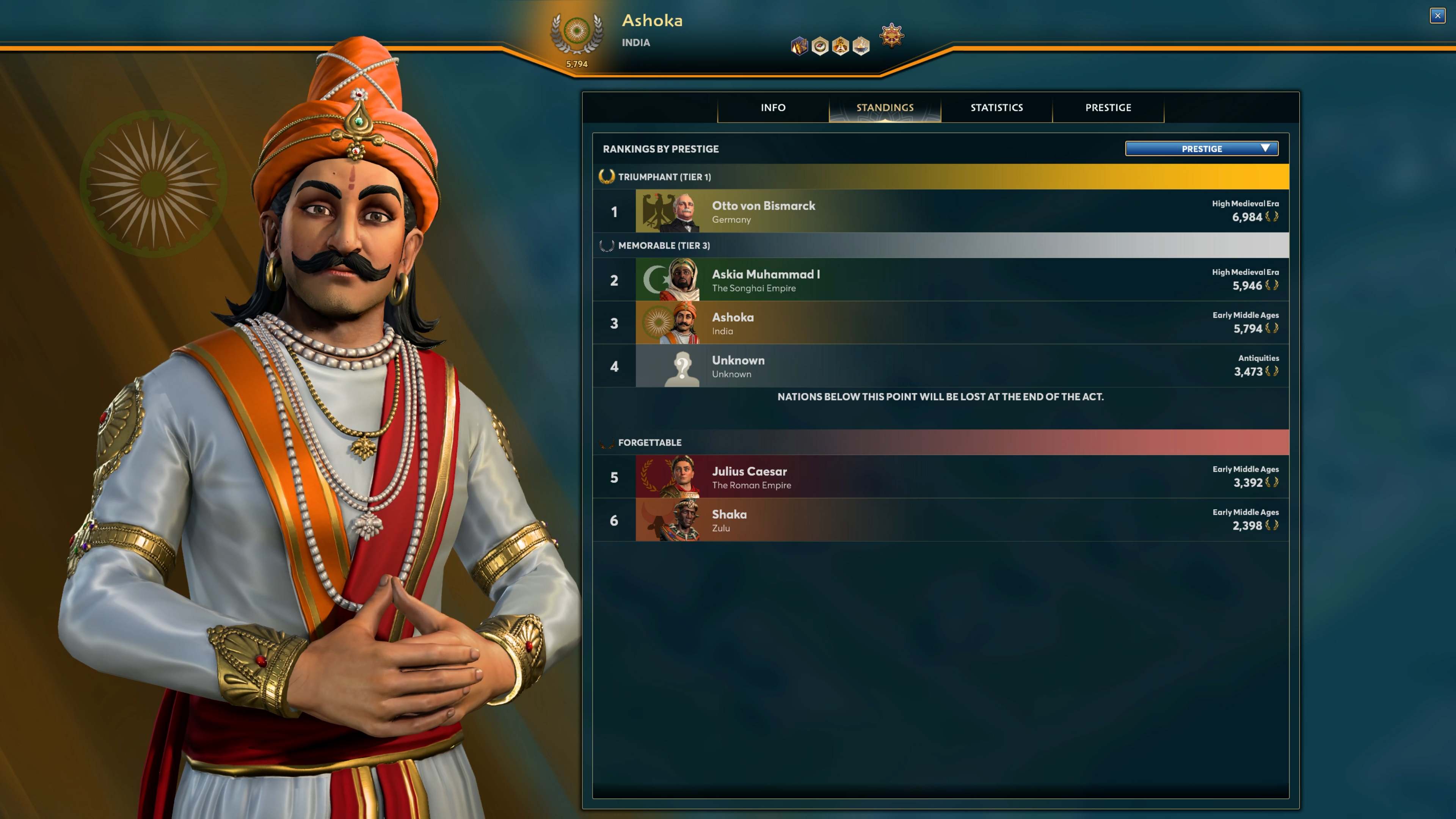
Given Ara: History Untold's obvious similarities to genre heavyweight Civilization, it's inevitable that comparisons will be drawn. I found myself doing the same to the best of my limited knowledge, but in my second preview, it finally sank in that Ara is fundamentally different in one key aspect: Prestige.
Instead of pursuing a single tract of victory, such as military or cultural domination, you're instead attempting to raise your civilization in all areas. "You're trying to build up your notoriety, your Prestige as a nation over time," Gabriela Leskur told me. "When you're thinking about winning the game, your people, their happiness, their health, their education, their security, their prosperity, all of these matters on a grand scale."
Achieving new scientific milestones and researching new technology, constructing cultural marvels and monuments to your nation's glory, spreading your religion, dominating other nations in battles and wars — all of this adds to your Prestige, which is essentially a global leaderboard that ultimately decides the victor. Nations that can't keep up fall away early on, while only the most successful nations survive through later eras.
"In the real world, we see that there are nations that are lost to time, so we're replicating that here," Leskur explained. "If you're going from one stage of history (one Act) to another and your nation isn't quite doing enough to stand out, then your people might go and become part of larger nations, and your culture and elements of that might be lost to time."
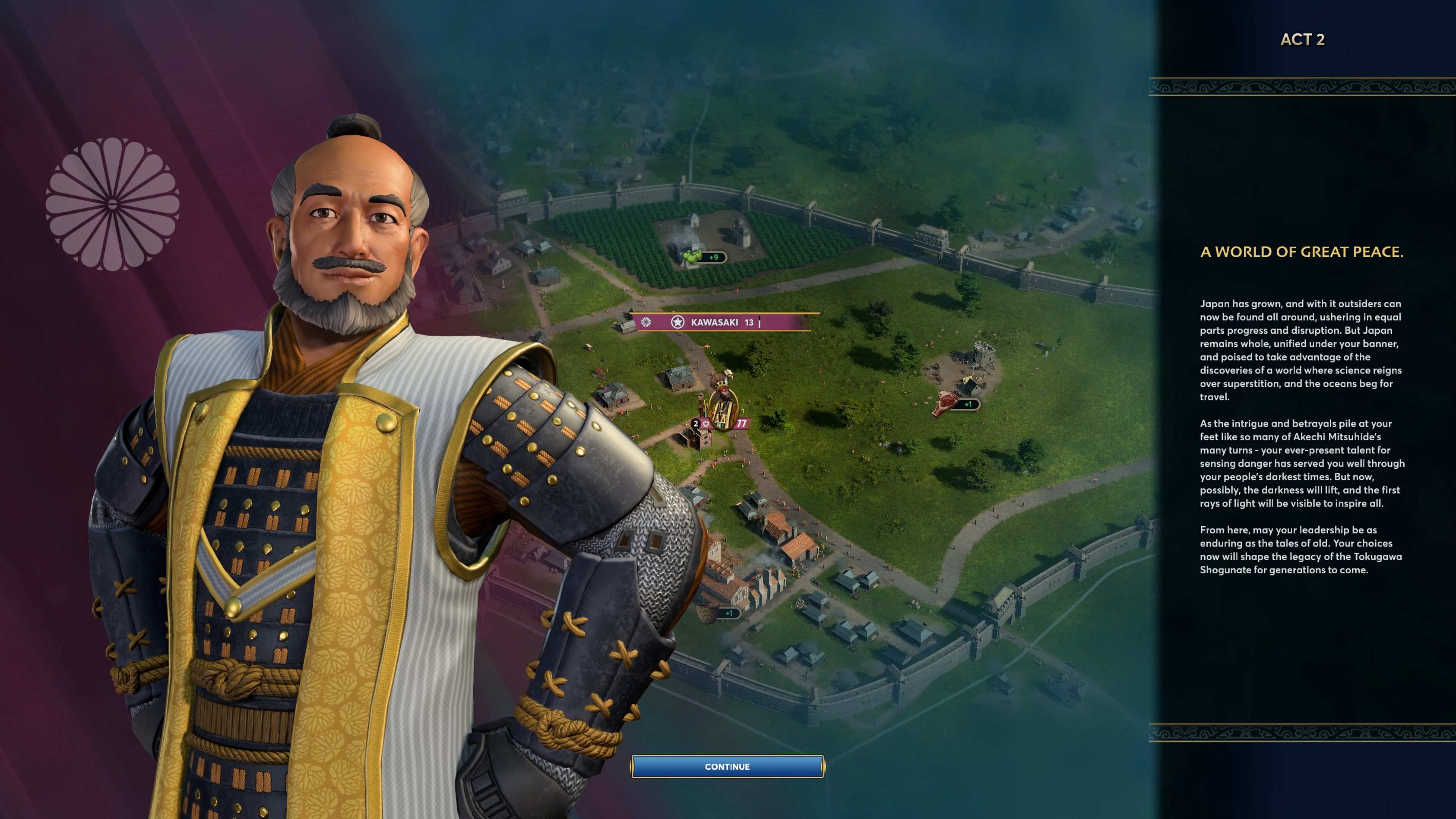
"Your cultural impact, your religious impact... then the inevitable Act transition where if your actions have made another nation fall so far behind in Prestige that those people or that land might benefit you if they are lost to time."
Sure, you can still go the ole' reliable route and attempt to conquer all of your rival nations, but Ara: History Untold purposefully makes that a more challenging path to tread down. "You can approach a military victory, but you have to do so thoughtfully because there is a cost to declaring war, and there's a cost to losing war." Implementing a "cost of war" is hardly new to the genre, but in Ara: History Untold it specifically encourages players to use war as yet another tool in their arsenal to build Prestige and gain an advantage.
I personally grew exhausted playing Civilization because it felt as if you had to commit to one path early on if you wanted to win, discouraging exploration and experimentation. In Ara: History Untold, the Prestige system means that everything you do can help you progress. Your strategy can draw from every area of the game, driven by your Leader's unique abilities. Playing as Sappho of Greece, I remained competitive without ever building a single military unit.
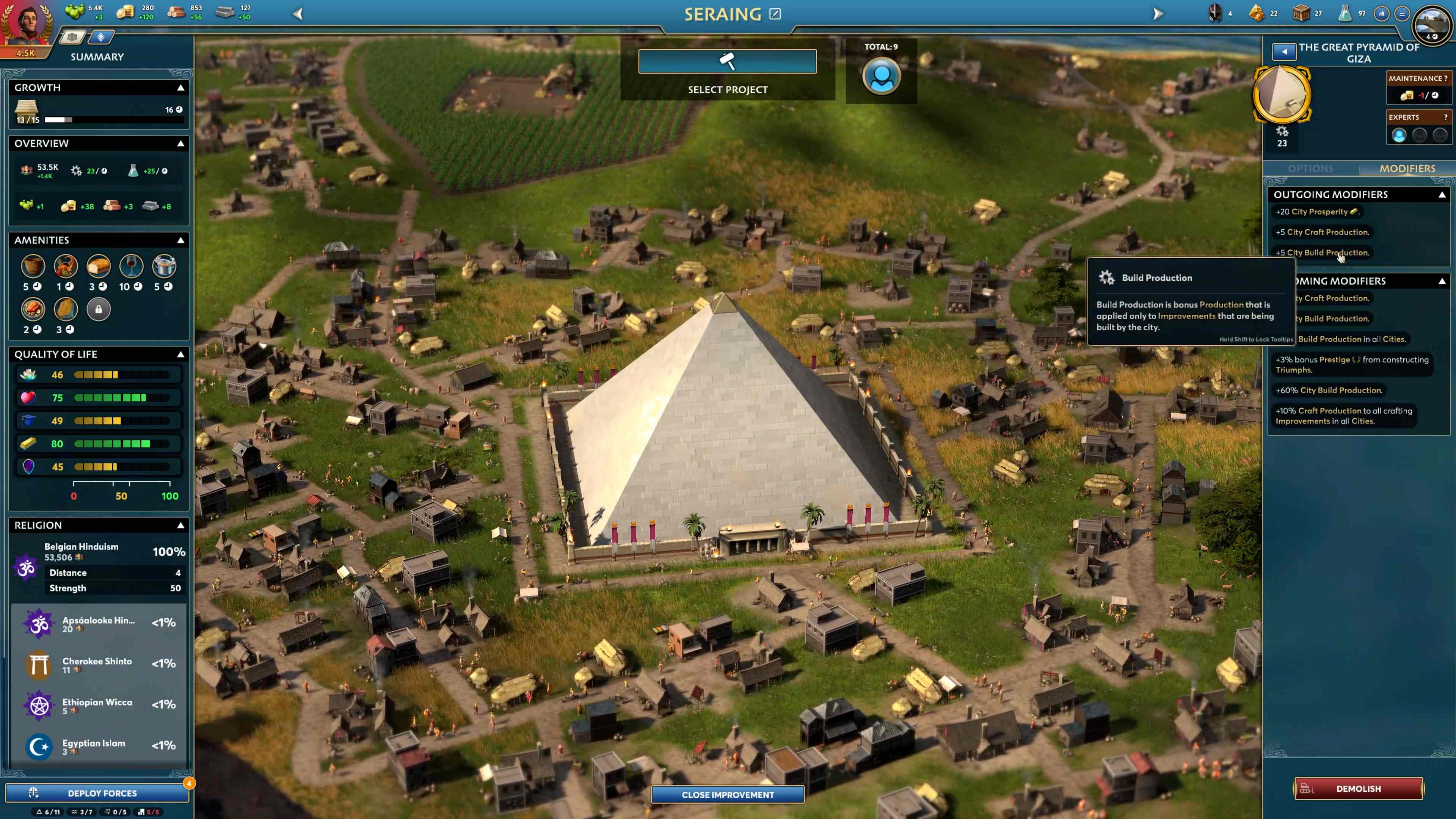
During the three separate previews I had (likely a little less than two hours combined), I explored Ara: History Untold's crafting system. This sees you actively use the resources you harvest, mine, or discover to create amenities to improve your quality-of-life, economy, productivity, and more, as well as be valuable products to trade with other nations. I explored how building up your cities differs from Civilization, with a focus on crafting tools to continually make your improvements more capable.
I only had one battle, though, in which my lone Scout from the beginning of the game was cornered by a roving tribe of warriors. My Scout, alone and untested, was trapped with no route of escape until it died. Any other time war threatened my nation, I used my abundance of horses to negotiate swift treaties. I was curious, though, so I spoke with Leskur about how war works in Ara: History Untold.
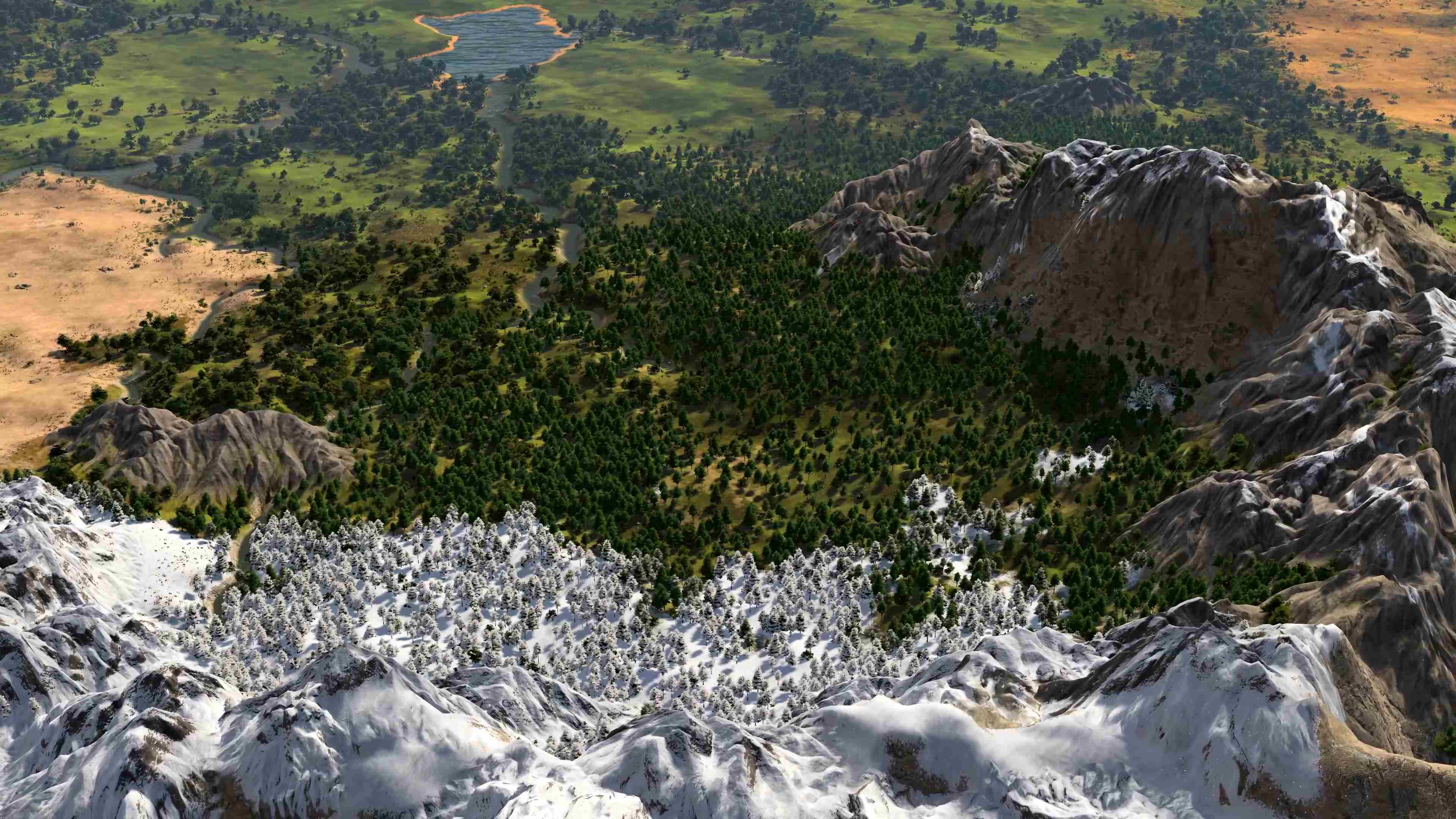
"You have to train [units] to understand what their job is, what their purpose is," Leskur told me. "Military units are trained and then await deployment in your reserves. From there, you can look at all these different formations, which can include multiple units." This is another area where Ara: History Untold seeks to innovate in the genre, placing a lot of depth in how you form your armies.
"You might have a three-unit formation that has a spearman, an archer, a cavalry unit. You can choose a unique formation that has all of them in it, and has unique buffs to them being placed in different slots." You can bundle multiple different units together into formations and then stack those formations into armies. All of this is combined on the battlefield, in which the arrangement of formations provides special bonuses, as well as the combination of different formations.
These armies and formations can also move in unison, making it far easier to maneuver your troops, fortify your cities with larger forces, and change the tide of individual battles by bringing in reinforcements. This, the Prestige system, and the crafting all add further elements of strategy that I honestly thought were lacking in Civilization VI when I played that, and it makes me excited to explore the full game more thoroughly.
Putting PC players first... But maybe not forever
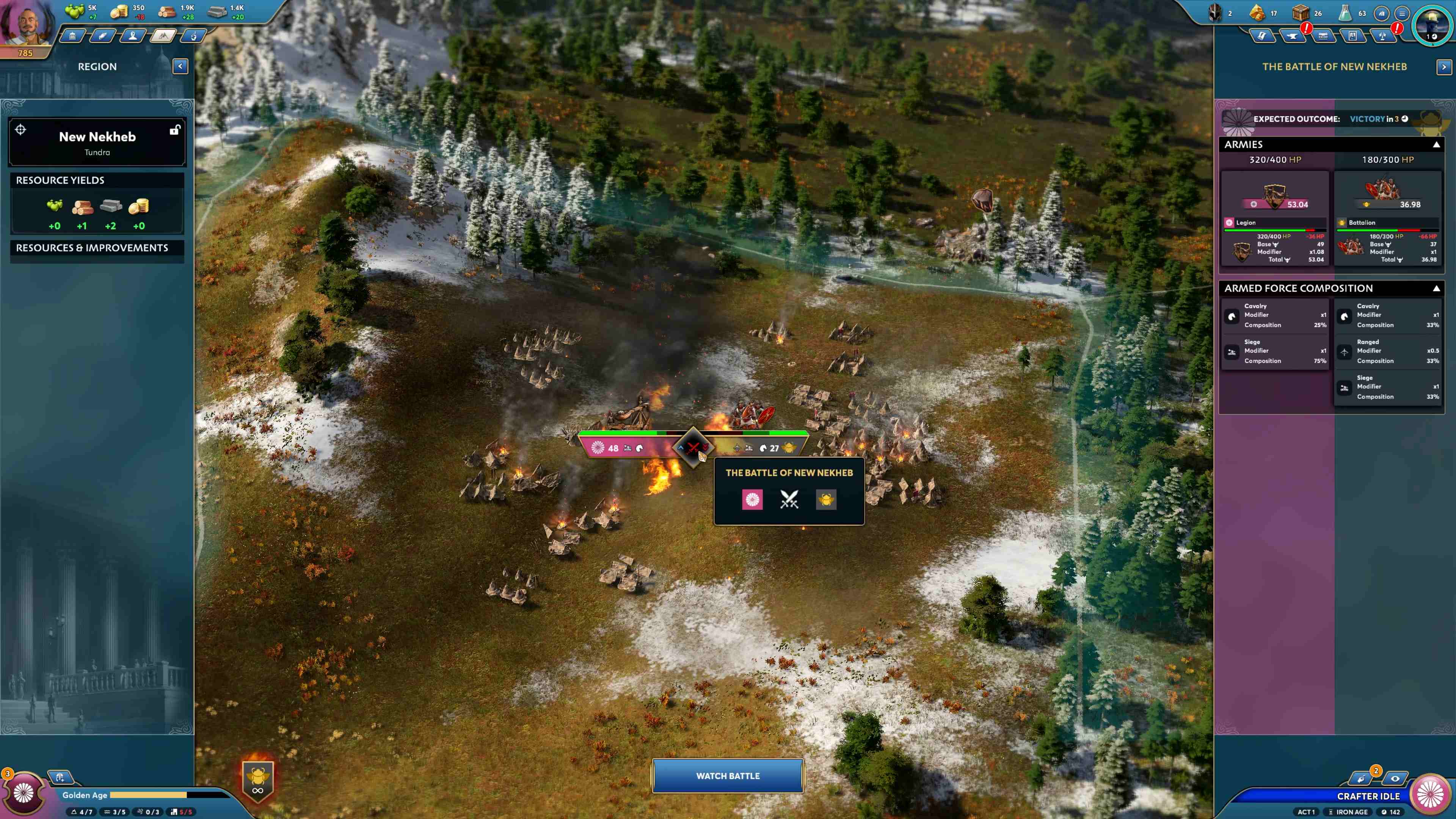
When I previewed Ara: History Untold during Gamescom, I also enjoyed a lengthy discussion with the Oxide Games representative there. I unfortunately completely forgot to ever get his name, but he did help teach me a lot about the game and genre. At one point, I had to ask about Xbox, and he told me (I'm massively paraphrasing here) that when Oxide sat down with Xbox to pitch Ara and were asked what they wanted to do, the starting team held up a mouse and keyboard and said: "We have to get this right, first."
It seems that's a common mindset at Oxide, as Leskur told me during our conversation, "Definitely wanted to, first and foremost, get keyboard and mouse right, and also understand as we hear from players what elements of the experience can be optimized in that regard that might, in the future, impact consoles, too."
Right now, it's clearly all hands on deck getting Ara: History Untold on Windows PC, so the studio isn't really confirming its future plans. However, given the success of the Age of Empires and Age of Mythology games on Xbox and Oxide's close relationship with Xbox as a publisher, it seems inevitable. Oxide's developers are also considering what lessons they can learn now that might benefit them down the line. "I'm always interested in an experience standpoint in looking at how we take these complex strategy games and do them justice on console," Leskur said. "How do we also create a transfer that is intuitive and accessible? I'm always thinking about how we can learn from the best practices from other games."
As I said, though, the initial Windows PC release is by far the top priority for Oxide Games right now, and will continue to be incredibly important after launch.
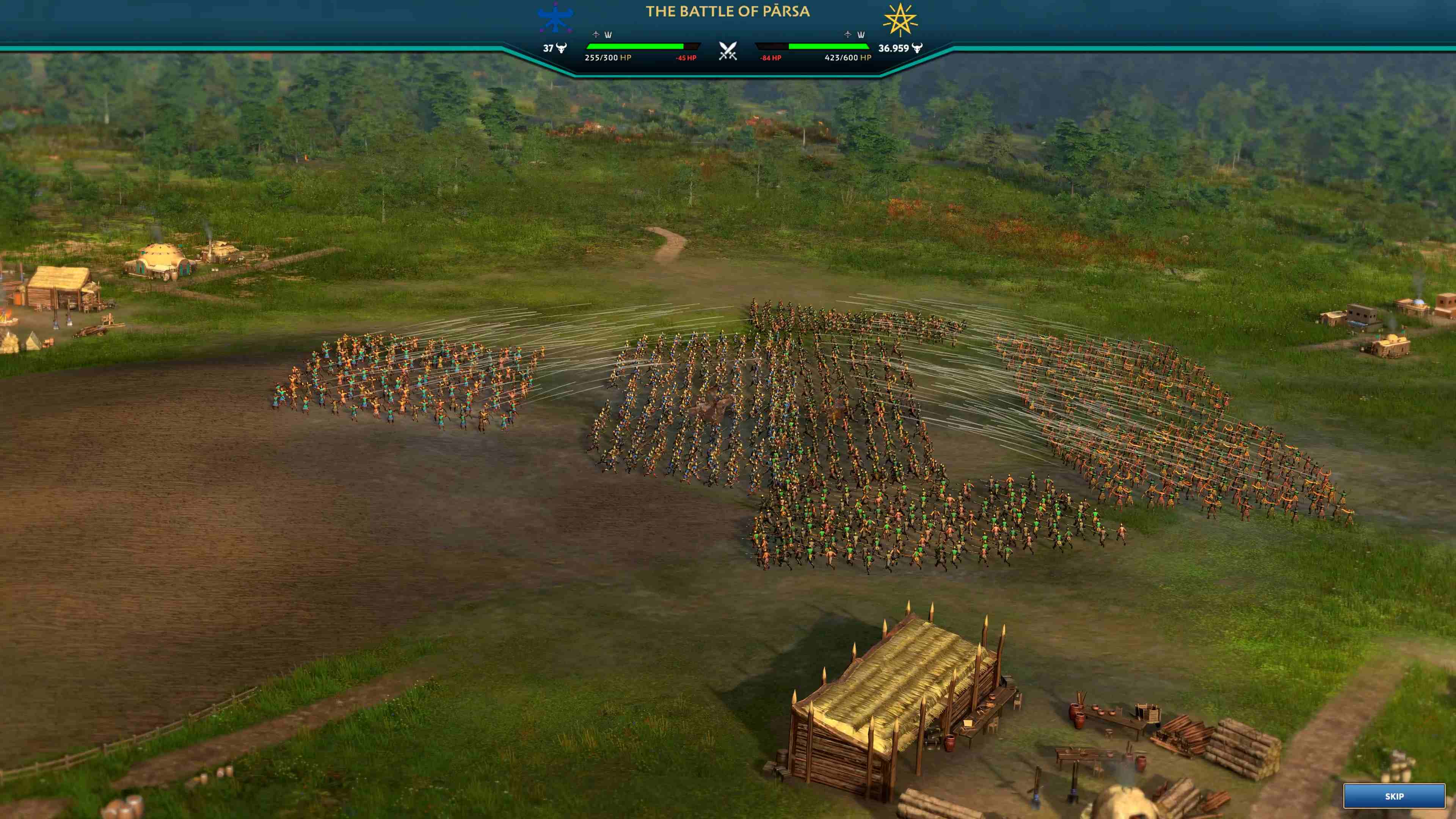
"We believe in the game and we also acknowledge that there's much more to the world than 30+ leaders or 30+ cultures and nations," Leskur told me when I asked about what comes after the launch for Ara: History Untold. "We're always going to be looking and learning from players about new potential nations and leaders that we might want to include in future content."
"There is also, going forward, intention to have robust community support — modifying and updating the game based on feedback that we're getting from players." Player feedback has already played a crucial role in the development of Ara, apparently, as the game has enjoyed three technical alphas that immensely helped Oxide get its debut strategy game to the finish line.
"Something I'm always really looking at with feedback from our players in a game as complex and as deep as Ara is how might we better surface details to our expert players while also not overwhelming our players who are more beginners to the genre," Leskur explained. "That's something that we've gotten great feedback about in our technical alphas, and have incorporated those lessons into our preparation for release."
"It's wonderful to hear from players about different aspects of the living world and our narrative event structure that resonate with them based on their cultures or their own lived experiences," Leskur added.
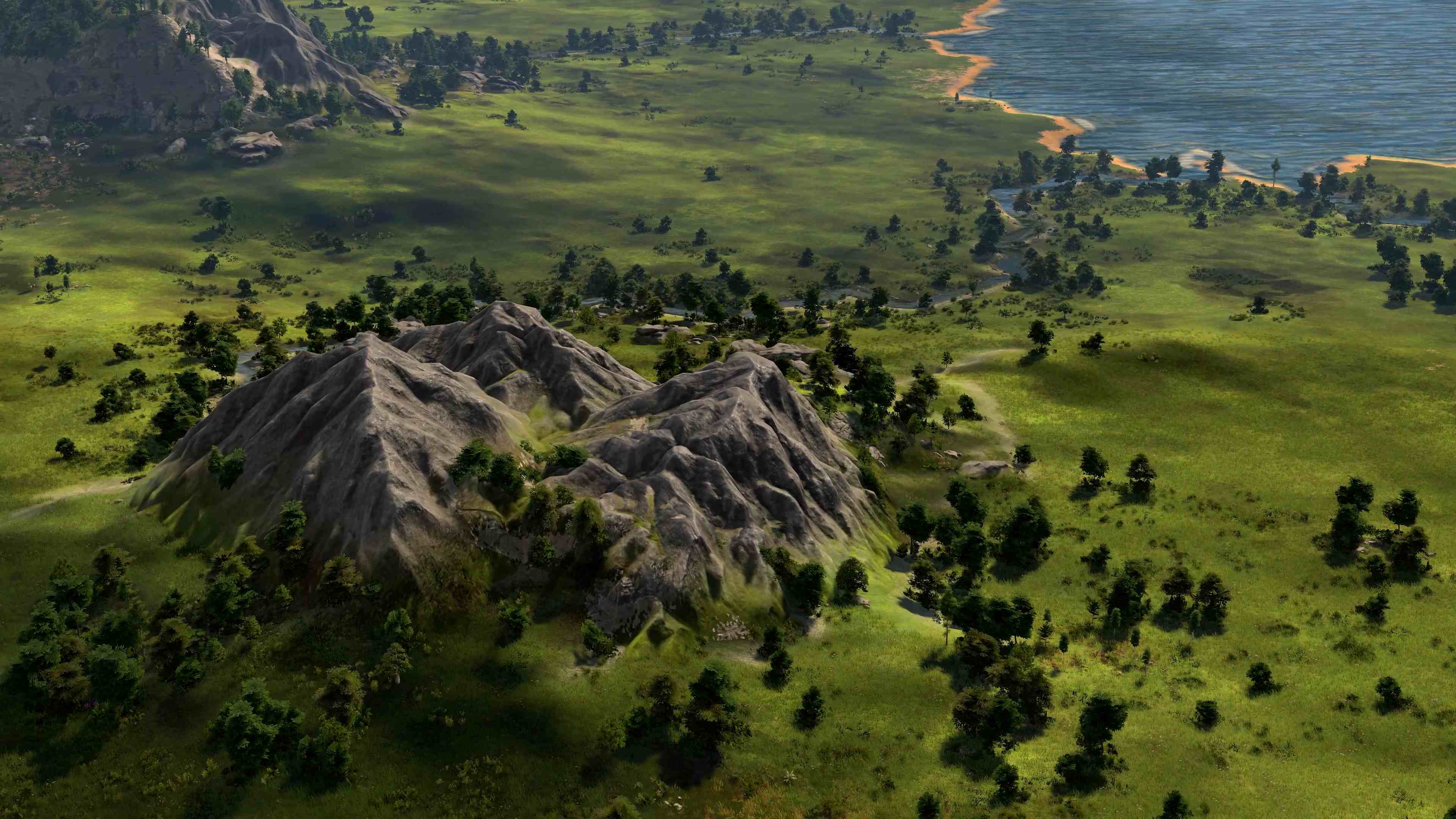
For Oxide Games, the balance for Ara: History Untold is appealing to the genre veterans with depth and complexity while also attracting brand-new players with accessible and approachable game design. "It's really from an accessibility standpoint. How can we have our cake and eat it, too? I think we can — at least that's always the pursuit," Leskur said. Accessibility in video games is incredibly important to get right, and I'm relieved to hear that Oxide Games is aiming to do exactly that.
"Accessibility is definitely a passion within Oxide, with the expertise of the Microsoft team in looking at the game and thinking about how we can continue to make it accessible to as many people who want to play it as possible," Leskur continued. When I played the game, the menus did feel intuitive and easy to read, and I know there are options for UI scaling, colorblind modes, screen narration, and more. I didn't have an opportunity to truly dive into options and really explore the outer limitations of Ara: History Untold, though — that'll have to wait for a full review.
This topic also brought us to discuss Oxide Games' relationship with Xbox, with which Leskur has personal experience. "I love the Oxide team, but also I've had the chance to work very closely with our publisher, particularly with historians and writers from Microsoft, on co-creating a lot of our narrative events," she explained. Xbox has apparently been largely hands-off with Ara: History Untold, but assistance with historical accuracy, accessibility, and other elements of the game have all been received graciously.
"It's great when you have multiple organizations working together; you really have a diversity of thought and experience that you wouldn't have gotten alone," Leskur told me.
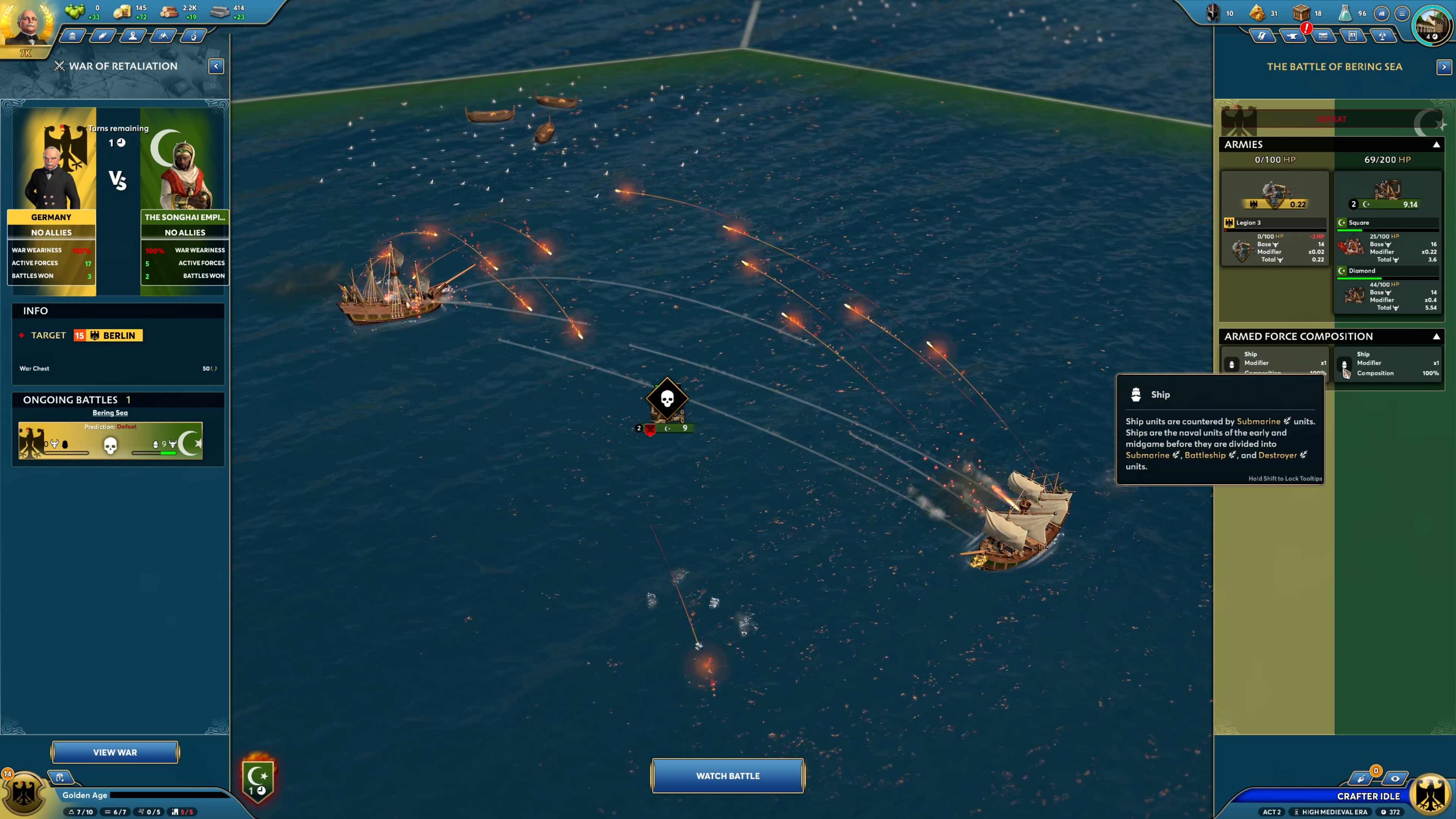
So, Ara: History Untold may come to consoles in the future, and it will probably enjoy future content expansions and additions after launch, but what do we know? Well, I've now been told by two separate Oxide Games representatives that one feature is definitely being planned. "There is work looking into modding support as a primary field of interest for our developers; we understand the utility for a game like this," Leskur told me. During Gamescom 2024, there was a similar discussion on how modding support can be vital for a game like Ara: History Untold to enjoy a long, healthy lifespan.
Ara: History Untold is built on Oxide Games' proprietary Nitrous Engine, a massive undertaking that has contributed to the game's long development time (which, I was told at Gamescom, may not have been possible without Xbox's backing). The Nitrous Engine boasts neutral core threading for full support of up to 16-core PCs and a custom Microsoft DX12 rendering engine, all in the name of visuals and (most importantly) performance that simply wasn't possible with off-the-shelf engines. This also allowed Oxide Games to begin building modding support into Ara: History Untold from the beginning.
🎒The best Back to School deals📝
- 🕹️Xbox Game Pass Ultimate (3-months) | $29.79 at CDKeys (Save $20!)
- 💻HP Envy 16 2-in-1 (Ryzen 5) | $499.99 at Best Buy (Save $350!)
- 💻Samsung Galaxy Book4 Edge (X Elite) | $899.99 at Best Buy (Save $450!)
- 🕹️Starfield Premium Upgrade (Xbox & PC) | $27.69 at CDKeys (Save $7!)
- 💻ASUS Vivobook S 15 (X Elite) | $955 at Amazon (Save $345!)
- 🕹️Final Fantasy XVI (Steam, PC) | $43.79 at CDKeys (Save $6!)
- 💻Lenovo ThinkPad X1 Carbon | $1,481.48 at Lenovo (Save $1,368!)
- 🎮 Seagate Xbox Series X|S Card (2TB) | $249.99 at Best Buy (Save $110!)
- 🕹️Hi-Fi RUSH (PC, Steam) | $8.89 at CDKeys (Save $21!)
- 💻HP Victus 15.6 (RTX 4050) | $599 at Walmart (Save $380!)
- 🖱️Razer Basilisk V3 Wired Mouse | $44.99 at Best Buy (Save $25!)
- 🖥️Lenovo ThinkStation P3 (Core i5 vPro) | $879.00 at Lenovo (Save $880!)
Inviting new players into the strategy genre
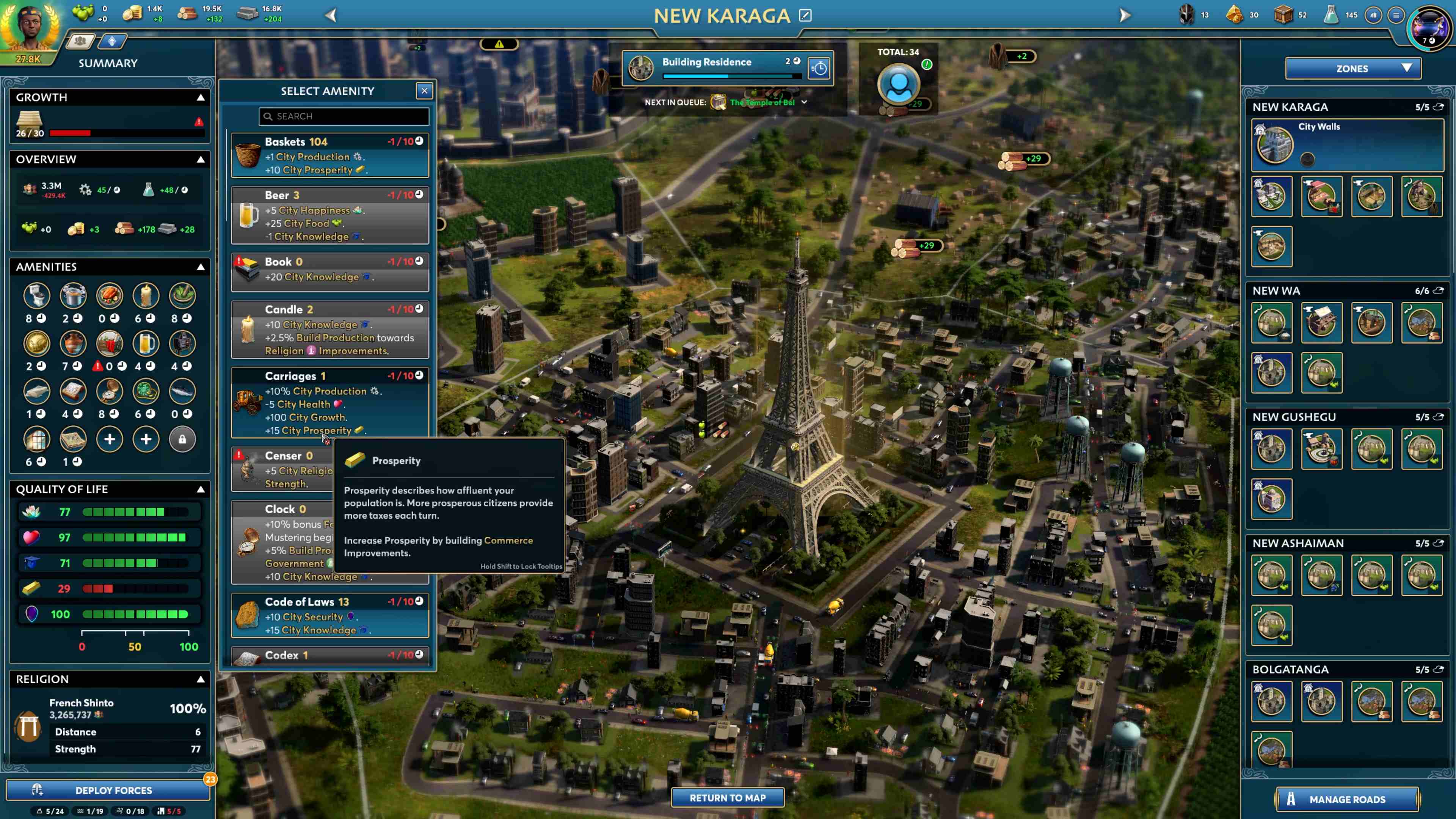
I want to end by going into a little more detail on what sets Ara: History Untold apart from the rest of the strategy genre. Oxide Games is going up against some well-established heavy hitters in the space, but the studio seems confident. "Oxide had the desire to create a game that could find a home alongside other key historical grand strategy games... but be different enough that it could bring new folks into the genre as well," Leskur said.
I discussed three major elements that differentiate Ara: History Untold from other games like Civilization, but there are many minor changes that aim to make the strategy genre more inviting and flexible as a whole. "One thing that sets Ara apart is... the umbrella of Prestige as a way that one can advance in the game," Leskur told me, referring to what I said earlier. "Instead of having a set type of win condition, where you're going all in on military or religion... You have your potluck approach, your Charctuerie board of ways to win."
"Another key differentiating factor with Ara is our crafting system," Leskur continued. "These resources that you're harvesting or you're finding in the world can be processed by different Improvements, whether that be a bakery or a workshop, into amenities and supplies."
Above all, though, is the simultaneous multiplayer that puts an end to waiting on AI or other players to finish their turns.
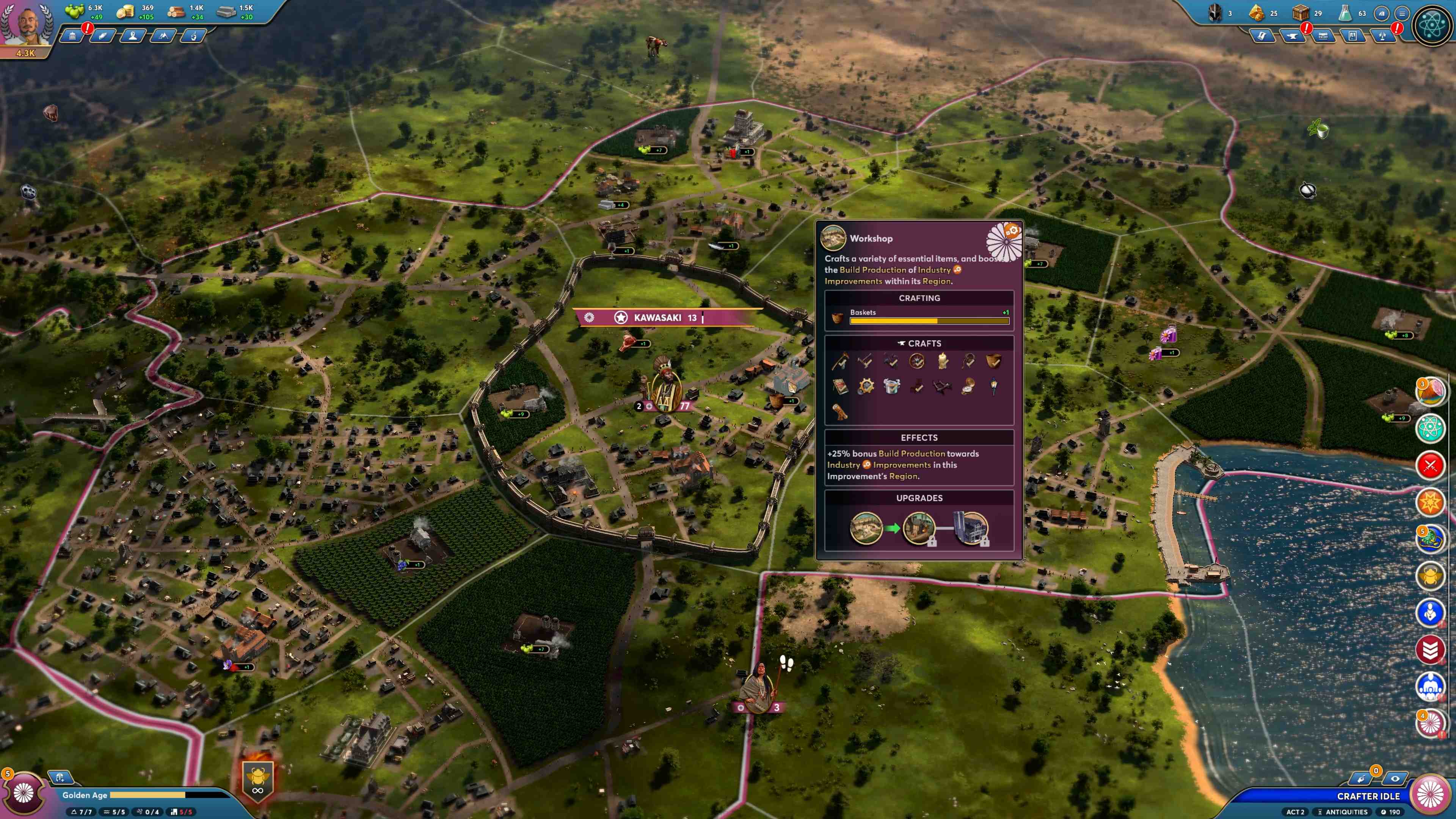
"Simultaneous multiplayer is huge," Leskur told me. "It'll allow a lot more people to come together at the same time. In a lot of other turn-based games, you have to wait for every other player to make their choice, and then it could be anywhere from five minutes to a really long time depending on how many people are there. With Ara, all players in multiplayer are making their choices at the same time within a turn time, and they're all processed at the end of the turn and you go again."
It's a huge advancement for the turn-based strategy genre and is apparently largely possible because of the performance gains with Oxide's proprietary Nitrous Engine. If the studio had been limited to the same engines other strategy games are built on, it probably wouldn't have happened.
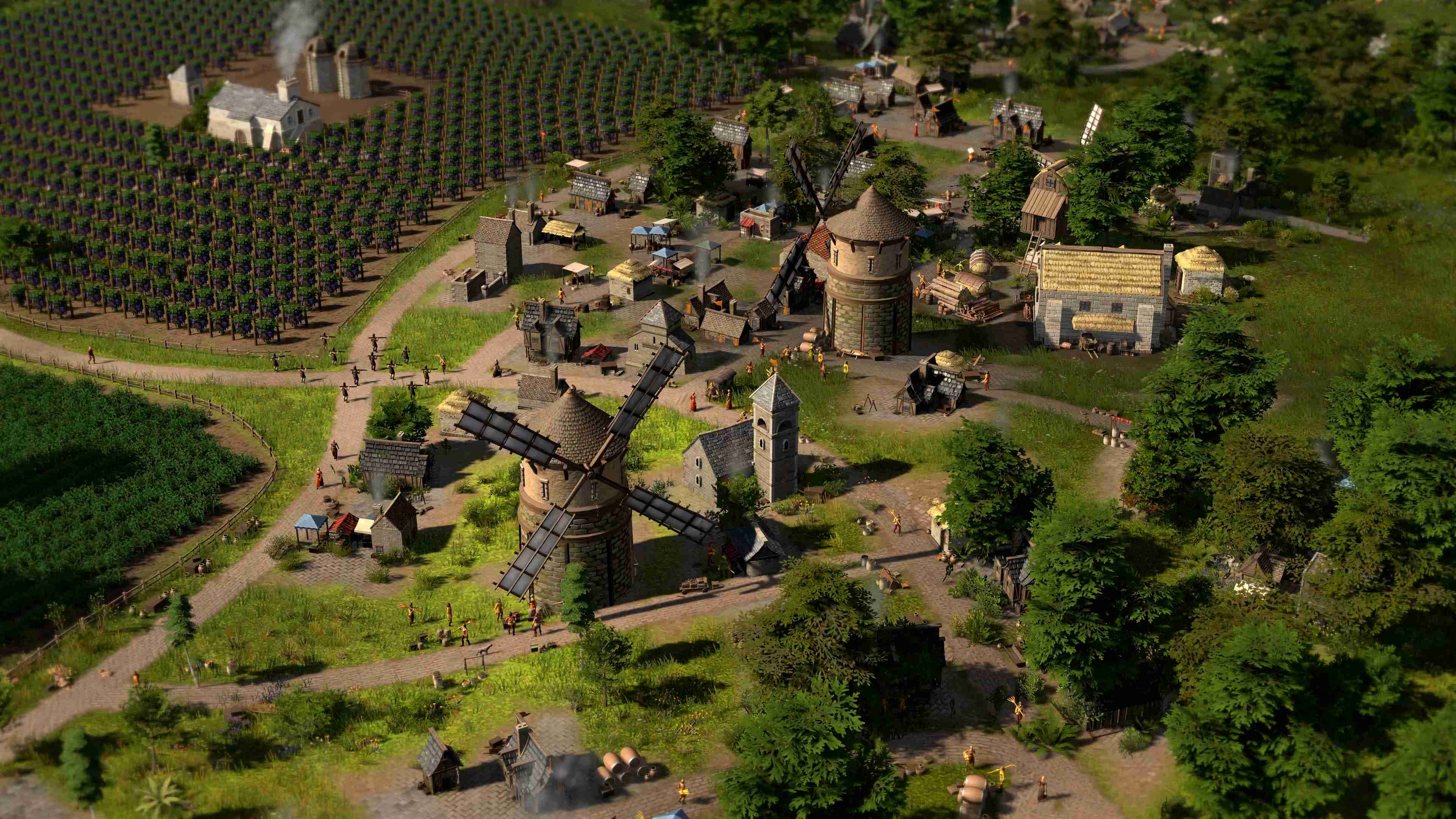
Ultimately, though, Ara: History Untold aims to offer a brand-new turn-based 4X grand strategy adventure rather than "replace" any of the games that came before it. I asked Leskur about her thoughts on the recent Civilization 7 reveal, for example, which showed several ways it seems Civilization is moving in a similar direction as Ara, like with a triple-act system.
"When I see other games in the space coming out with their own innovations, Leskur answered, "I feel like there is enough room for all of us to succeed, and there's enough differentiation that I feel like each game is its own thing." I'm not the best equipped to detail exactly how Ara: History Untold will be its own thing, but I am very excited to explore the game more to see if Oxide Games truly nailed the strategy genre on its first try.
Ara: History Untold is just around the corner, too, slated to release on Sept. 24, 2024, for Windows PC on Steam and Microsoft Store, and will also be a day one addition to PC Game Pass. You can preorder Ara: History Untold now, choosing between a Standard Edition and the Deluxe Edition with more leaders and nations at launch. If you're interested in learning more about Ara, I'm actually not the first to chat with Oxide, with our own Jez Corden speaking to several members of the studio earlier this year.







